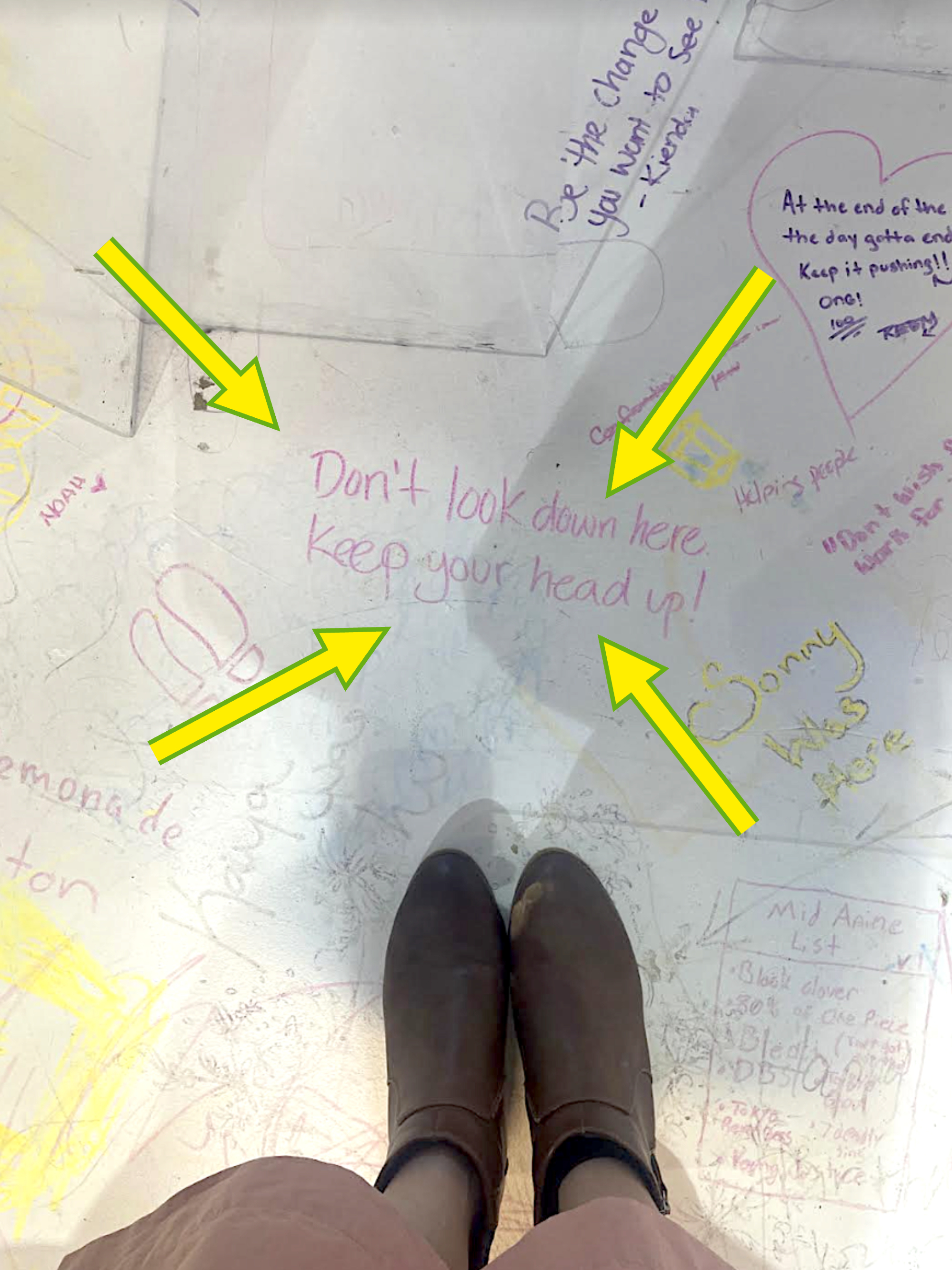Hi! My name is Raven, and I live with anxiety, specially social anxiety.
According to the Anxiety and Depression Association of America, 15 million adults are diagnosed with social anxiety every year, which makes up about 7.1% of the U.S. population. However, this number may actually be higher as it only identifies the people who have officially been diagnosed.
As for me personally, the intense, persistent fear that can come with social anxiety has dwindled over time (well, for the most part) thanks to therapy. However, I still experience a good amount of stress during most social situations, and it's usually rooted in negative self-talk.

But even though some of these symptoms like taking a front-row seat in my body anytime I do something new, different, or downright uncomfortable, I keep a few mental health tools in my back pocket to help me turn the stressful feelings way down.
It's important to mention that while the tips below may work for me and my mental health and anxiety, they may not be a right fit for you or a loved one — and that's completely okay. I want to acknowledge that going to therapy was and has been a huge part of my healing journey, and I fully understand the privilege of having access to mental health care.
This article is not a replacement for seeing a medical professional in any way, as anxiety issues are specific to each individual and could also indicate that there might be more underlying issues at hand. So, please make sure to talk to a medical professional if it works with your lifestyle before trying any new treatments.
So, if you, too, experience anxiety around socializing with others, here are the tools I used to reduce my social anxiety while I was on a recent press trip to learn more about mental health with a handful of strangers, as well as tips and insights from Dr. Elizabeth Scott, who's the author of 8 Keys to Stress Management.

Not to be dramatic or anything, but sometimes my soul leaves my body when I know I'm going to be doing something that involves a lot of energy with other people. Maybe it's because I have social anxiety, or maybe it's because I'm deep into my 30s with no "point of return" to my youth. Either way, the lead-up to a social event where I have to be "on" can be mentally taxing. To alleviate this, I made sure to pack these things on my trip just in case my anxiety flared up.
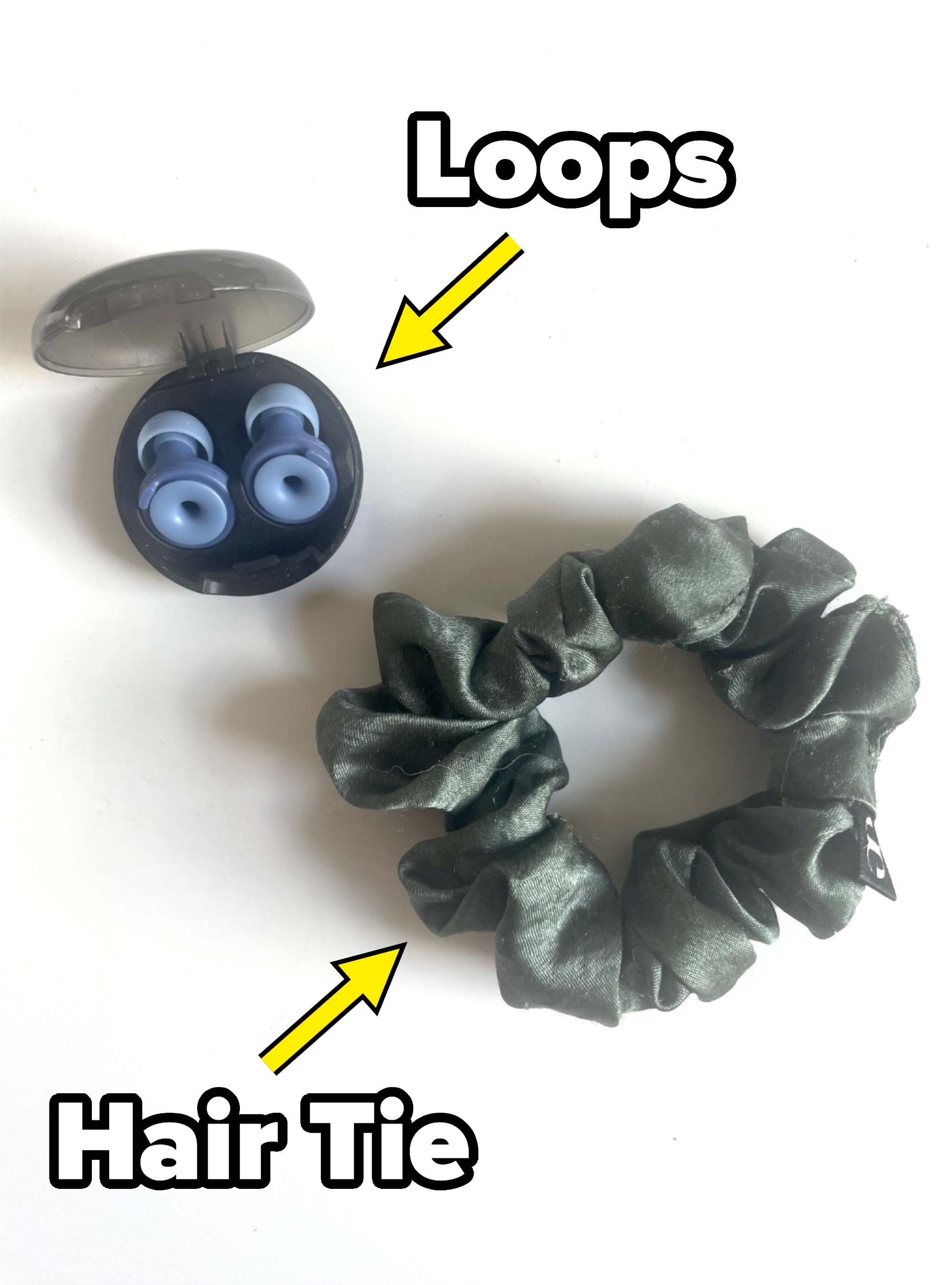
I also have a few go-to rituals that I do before meeting new people to boost my self-confidence and reduce the noise chatter. For instance, I had a few hours to kill before I had to meet everyone on the first evening of the trip for dinner, and I took advantage of that extra time to do some grounding techniques to reduce my anxiety, like eating food, meditating, taking a hot shower, wearing a fun outfit and makeup look, and listening to high-energy music to get me in a "social" frame of mind and out of my head.
To be honest, my stress levels were still pretty high after doing all of these grounding techniques, and that's okay. I would have beaten myself up in the past, which would have flared up my anxiety even more. However, I've recently realized that being hard on myself is not going to make me feel better — and that's not the point, right? The point is to be my best friend in comfort even in the most difficult of situations, which is why after I got ready, I surrendered to my anxiety by taking it one step at a time and went downstairs to meet everyone.
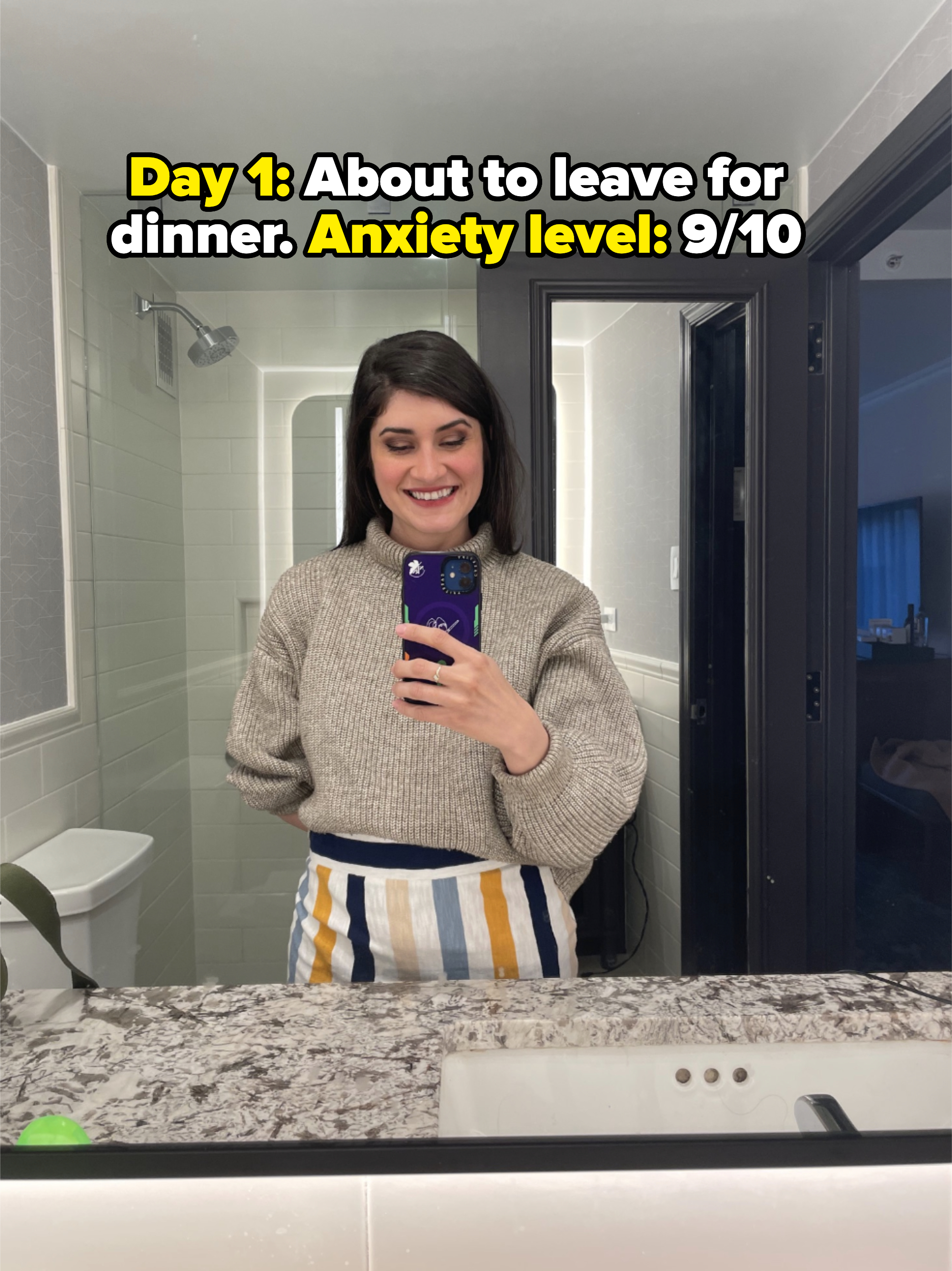
ANYWAYS, after experiencing my internal conflict while using my grounding techniques, there's one mantra I say to myself right before almost every meet-up: "I'm allowed to make mistakes." When I was working through my social anxiety a little over a year ago, my therapist noted that I often felt like I had to say the right thing at the right time in the right moment. Sounds fun, right? The truth is, I felt like I had to put this pressure on myself to keep someone engaged and entertained, and if they seemed bored, I would automatically think it was my fault, which is when the negative self-talk would creep in with the "I shouldn't have done thats" or "I should have said this insteads."

While all of the above coping mechanisms are great to do before meeting other people, and maybe this is just me, every relaxed emotion you have in your body can fly out the window the minute you're in the middle of the thing that gives you anxiety. First of all, that's completely okay. Remember to be kind to yourself if you find your heart racing a mile a minute. Just remind yourself that you're not in danger, even if it feels like you might be. (This just means your body is experiencing a fight-or-flight response because it believes it's near an inescapable danger.)
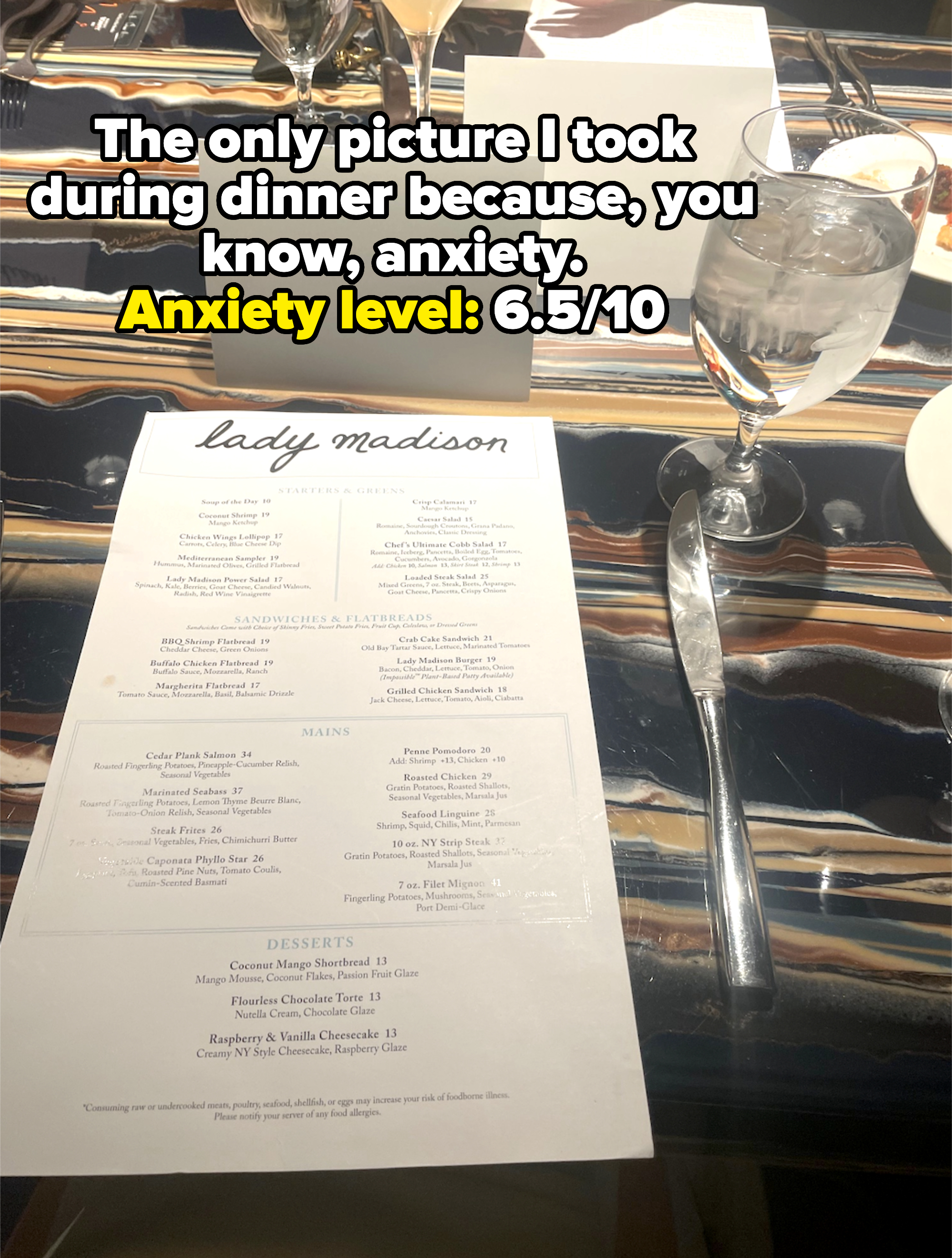
The good news is that with most social experiences, you can escape, so here are some of the tips that have worked for me throughout the rest of the trip:
1. Don't be afraid to acknowledge the awkwardness. When I met up with everyone for dinner that night, I was truly excited to get to know every single person. However, there were definitely moments when my anxiety was still high, which caused a few weird phrases to fly out of my mouth and immediately made me believe it was time to abandon ship. But instead of allowing an awkward moment to settle in the air, I would fully acknowledge the weird thing I said, which would make people laugh or, at least, give me the ability to switch gears. Simply saying, "Oh, that was a weird thing to say," or "Wait, I don't know why I said that" out loud is the pivot I did to readjust my mind and prevent it from going blank with fear.
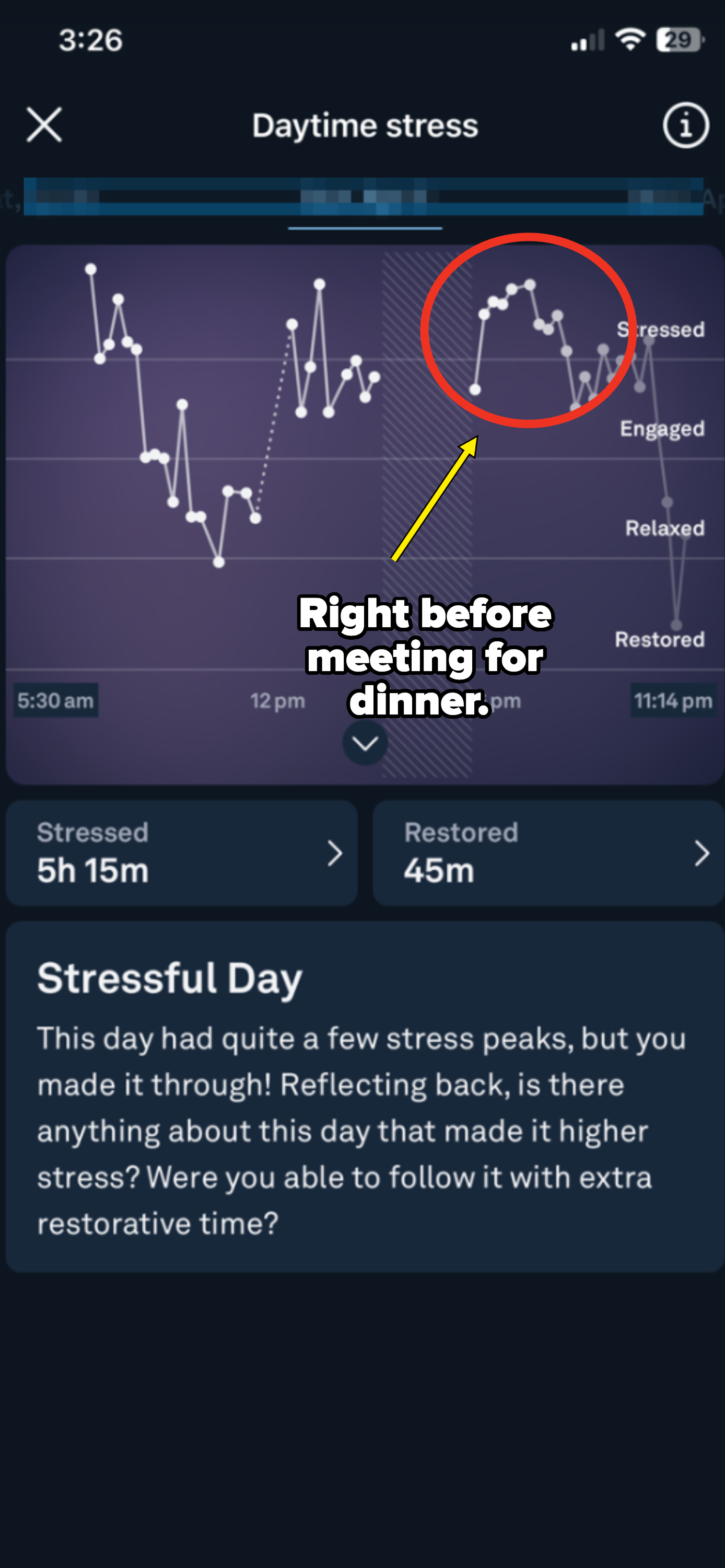
2. Focus on your breath. I don't know about you, but I tend to forget how to breathe when I'm anxious. Ever since I started incorporating meditation into my routine, the muscle memory of meditation has reminded me to take controlled breaths during anxious moments to slow down my racing thoughts.
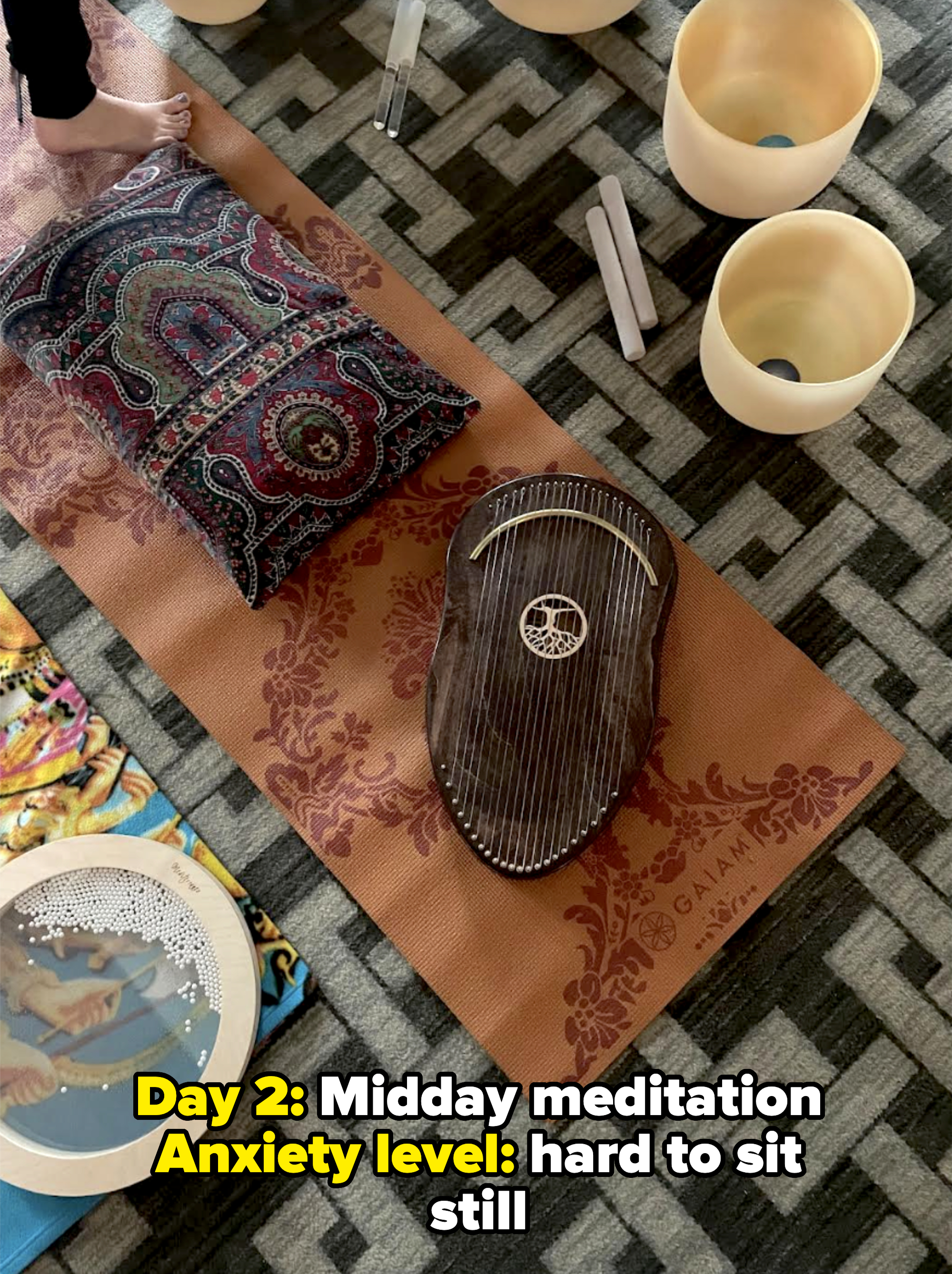
3. Rely on asking questions. If you feel uncomfortable talking about yourself, just remember that people usually love to answer questions about themselves. When my social anxiety was really debilitating a few years ago, my brain would go blank when I was talking with someone because my harsh inner critic would get so loud — and like an old TV that's on its last leg, I couldn't surf for any channels to figure out what to ask or talk about. Dr. Elizabeth explains that a harsh inner critic is that negative voice in our heads that is a collection of disapproving messages. "We’ve received [these messages] throughout our lifespan, particularly from authority figures or influential peers in childhood," she said. "This inner voice may range in tone from overly-protective parent to judgemental tormentor, but generally speaking, it can hurt more than it helps."
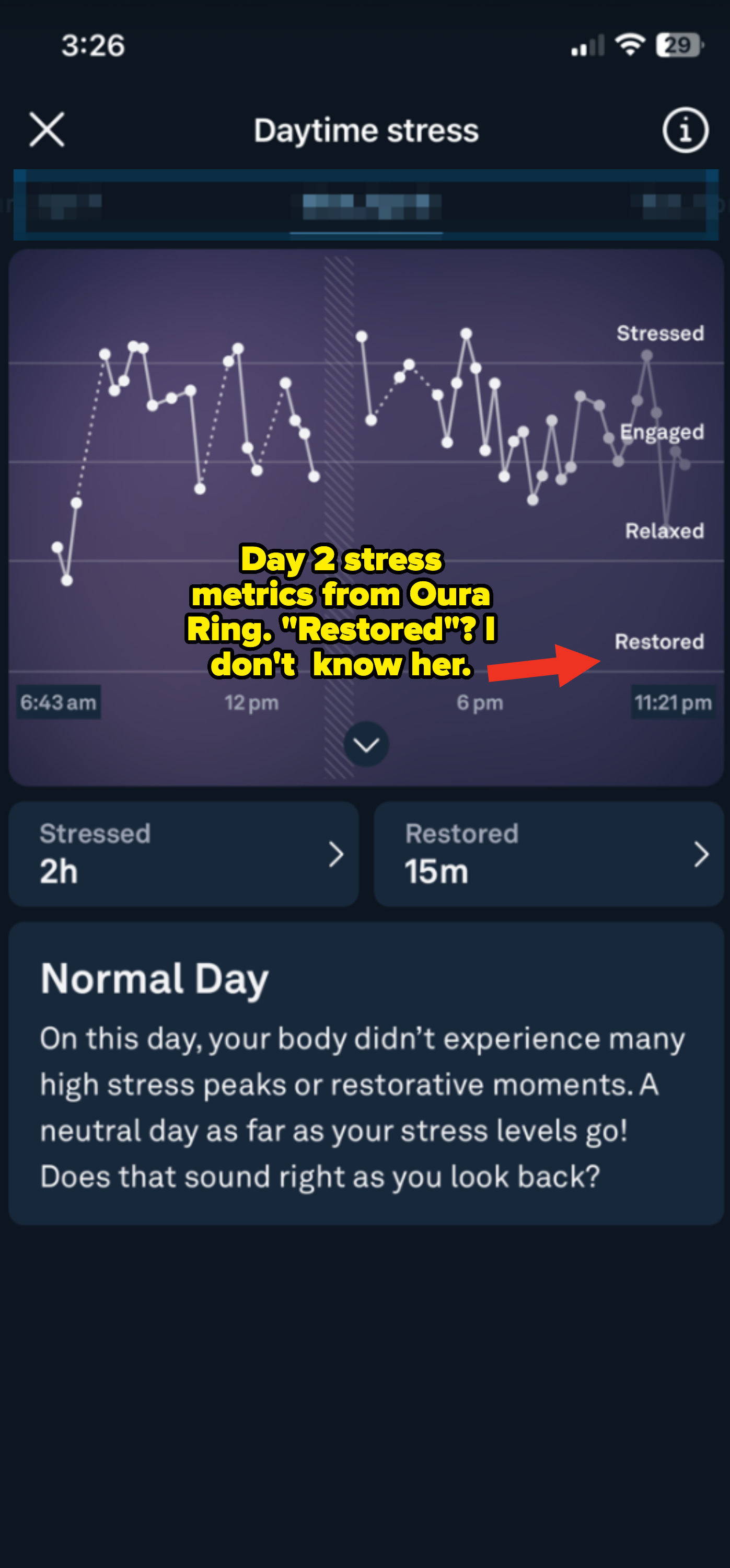
While it took a good amount of practice talking with others and going to therapy to reduce my mind from going blank over time, I've been able to create a Rolodex (yes, I'm old) of questions just on the off chance that the conversation gets a little dull. This technique helped me a lot throughout this trip. For example, if a lull happened during a one-on-one conversation, I would recall what they recently spoke about and ask a question that expanded more on that topic, so I didn't have to come up with something completely new on the spot. Lazy? 100%, but it works. The trick is to stick with open-ended questions to give the conversation a chance to flow and breathe and to actively listen when the other person is talking.
4. Don't feel pressured to fill the silence. Throughout the rest of the trip, whether we were sitting in a car, driving to our next destination, or exploring a fun exhibit, I tried not to let silence indicate that things were going wrong. In the past, if there was a dull moment in any conversation, my inner critic would fire off on all cylinders with negative assumptions about what other people were thinking, which prevented me from being present at the moment. However, after a few therapy sessions, my therapist told me that I needed to reframe my thoughts about how others may be perceiving the situation because I actually had no idea what they were feeling or thinking about at the moment. Simply put, it's hard to connect with others if I'm constantly having a one-on-one conversation with myself with assumptions that are most likely factually untrue.

5. Another great way to build confidence and reduce negative self-speak is through self-reflective journaling exercises, which I actually learned how to do on the trip from Dr. Elizabeth for National Erase Self-Negativity Day. For the exercise, you'll need a pencil or pen that erases and a piece of paper. Next, you'll write down a negative thought or phrase you have about yourself, sit with the feeling, and then erase it completely. Lastly, you'll write right on top of where you erased with a new positive word or phrase to replace the negative one.
For someone like me who lives with anxiety, I found this practice to be weirdly empowering, as I sometimes feel out of control with my thoughts. In therapy, I learned that when people write down their worries, it tends to reduce the words' power because it's no longer in the "bubble" you create in your head. So, when I saw the negative phrases I wrote down on the piece of paper, it actually made me feel kind of sad that these thoughts were swimming in my mind.
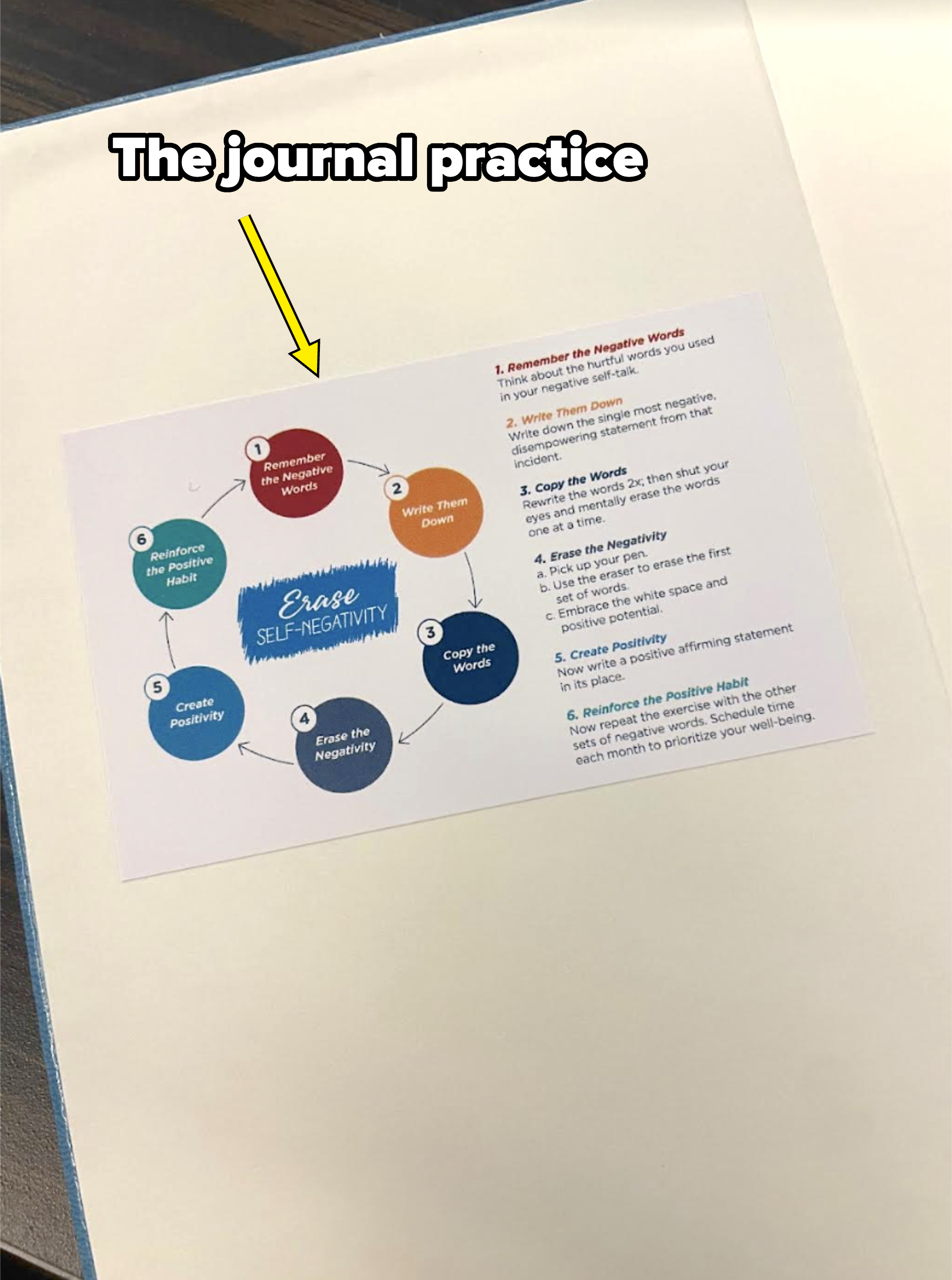
6. It's okay to exit the gathering early. You know yourself best. If you feel like you're done for the night — even if you've only been at the event for five minutes — don't be afraid to leave early. Remember, while it's important to face your fears and sit with the uncomfortable every now and then, it's also important to listen to your body and recognize that you've hit your wall.
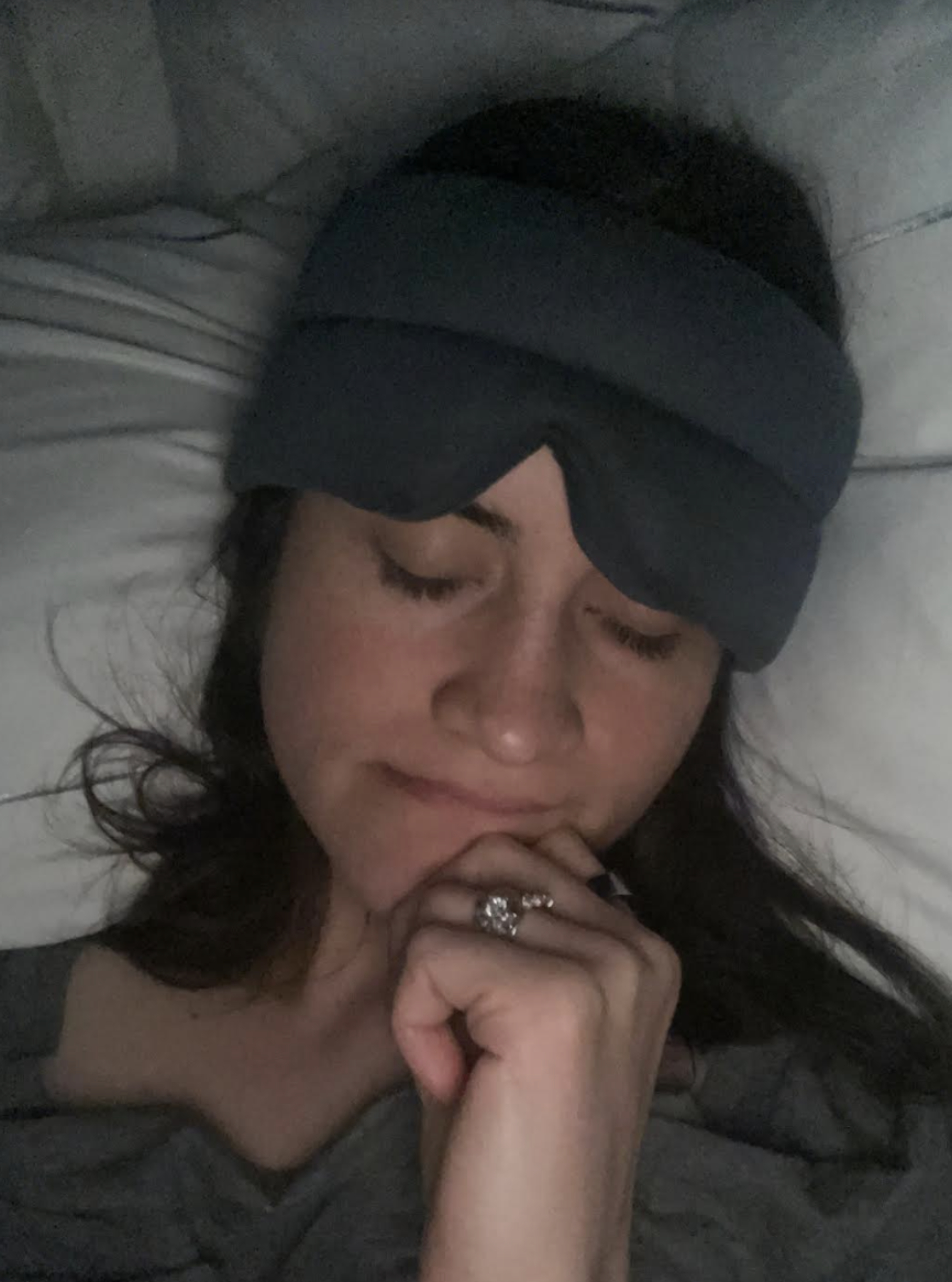
Yes, having social anxiety can truly suck, but just know that there is absolutely nothing wrong or broken about you (at least that's what I tell myself). Just because I sometimes have trouble holding a conversation with others for a myriad of reasons doesn't mean I don't deserve friends and companionship, right?
